A Spring to Remember: Lo’s CSI + Alternative Break Experience
I first heard about the Coastal Studies Institute from a guest speaker in my freshmen astronomy course. I was really amazed to hear that ECU had such an opportunity. Going to the Outer Banks for a whole semester sounded like an amazing chance to learn about the oceans I’ve always been so curious about. Fast forward a couple years, after it’d been on my mind for the longest, I finally decided to register.
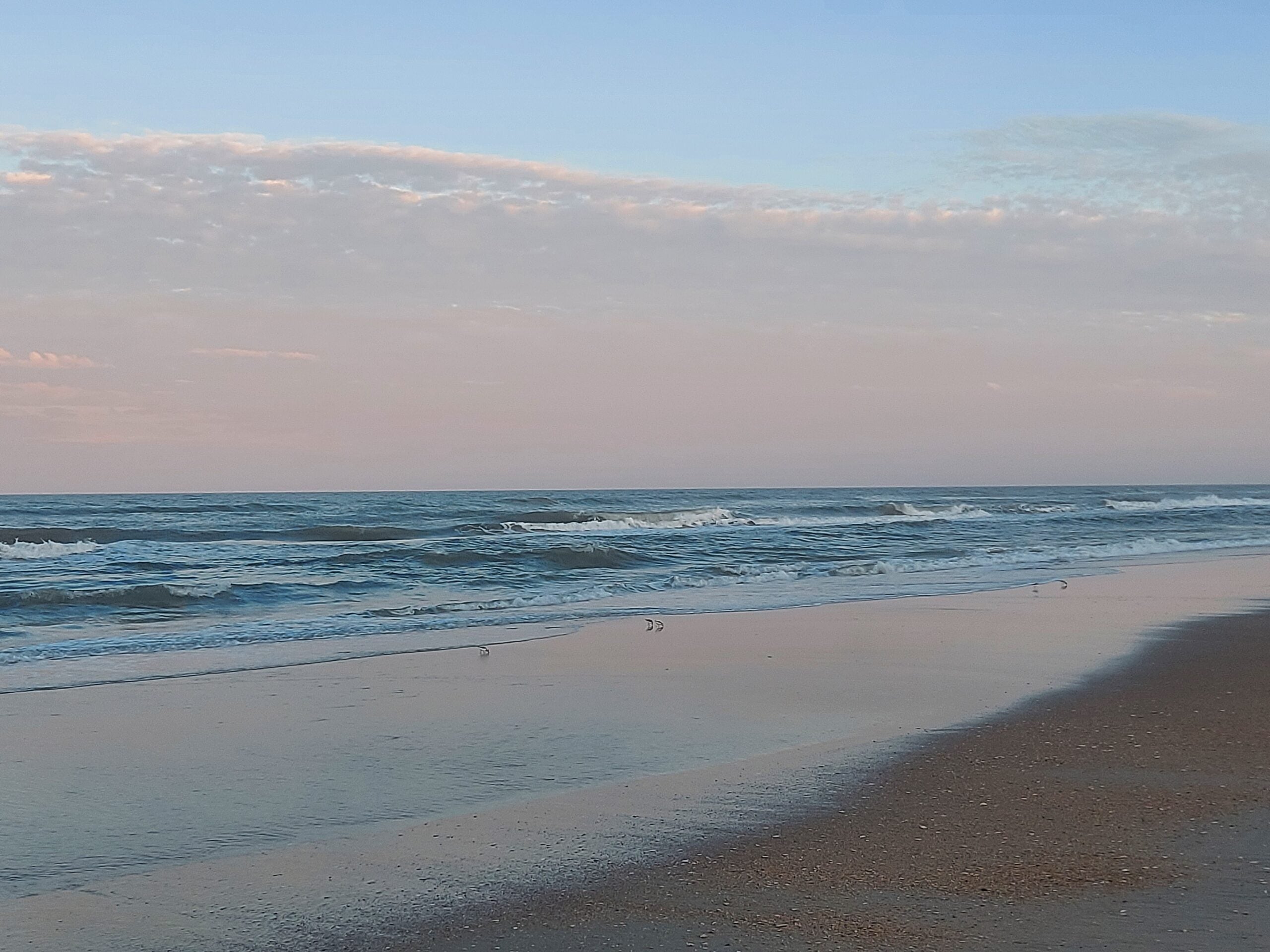
ARRIVAL
When I got there I immediately loved the little town Manteo they had us staying in. There’s so many small shops and parks, and the Elizabethan Gardens are just a bike ride away. Even with how cold it was in January I wasted no time getting acquainted with the area. The actual Institute is located a few miles from there in a town called Wanchese. As an environmental studies major I was really impressed with all of the sustainability measures the school takes. Located right by the wetlands, there’s so many native plants around which really came alive during the spring. And then as you go into the building, you feel like you’re in a sci-fi or something with all of the windows letting in natural light. The whole campus is planned out with the natural world in mind, and I could just tell that they really prioritize green building.
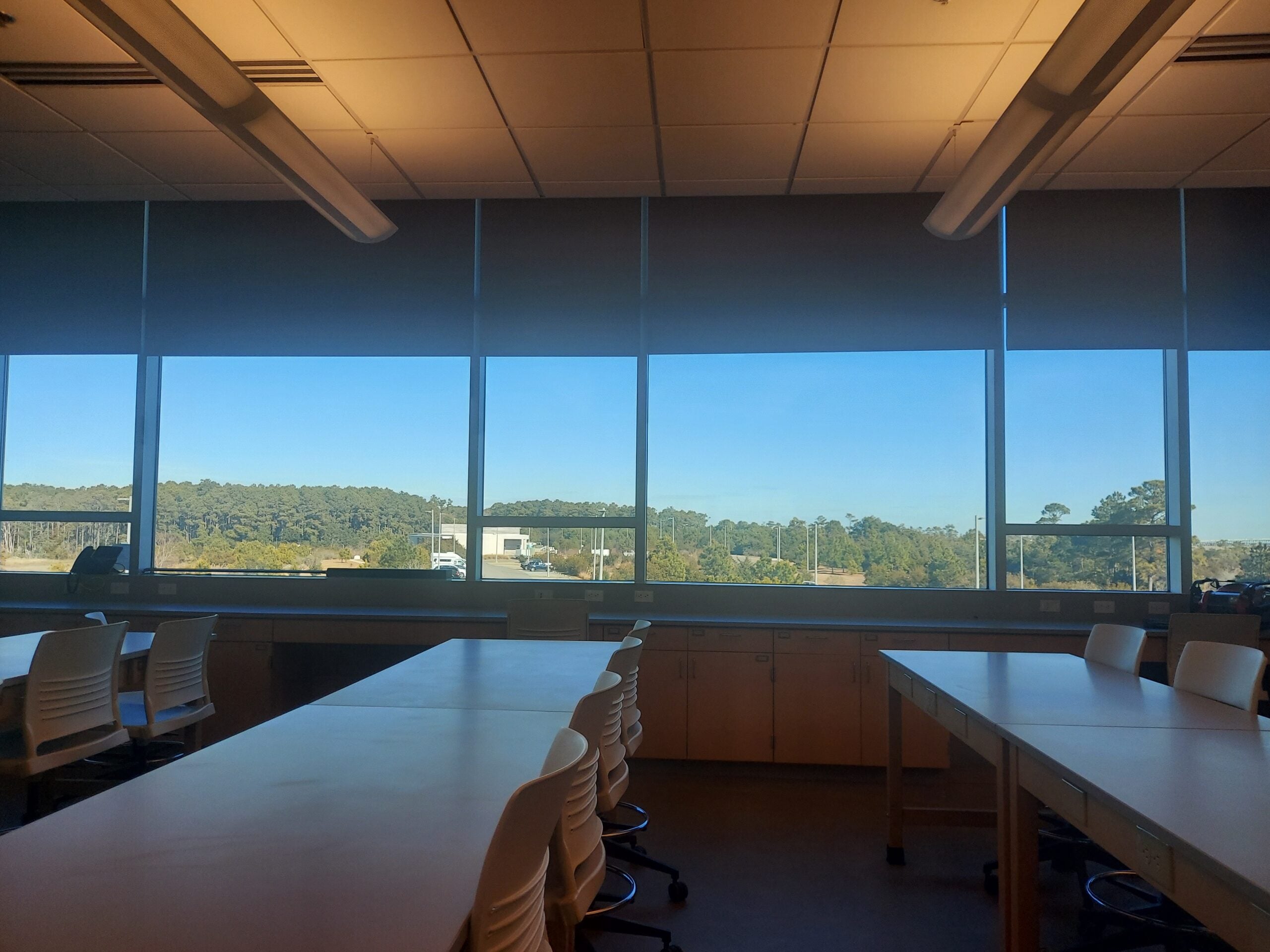
As far as my classes go, I ended up taking Environmental Anthropology, Oceanography and the attached lab, and the required seminar class. I also was able to take other classes I needed for my major online. My favorites ended up being environmental anthro and surprisingly the seminar class. At first, I assumed any required course was bound to be so dumb and unnecessary, but it actually ended up being really fun! We would basically go to different places around the OBX and learn about the landscape or find out about local organizations and their work in their communities. One time we went to Jockey’s Ridge State Park, which is probably one of my favorite state parks by now. In the midst of all the water and small towns you go by, you’re walking in then *BAM* you’re suddenly Paul Atredies on Arrakis, all you’re missing is a stillsuit and Harkkonens trying to break your stride (that was a long reference I know). Anyways it’s basically a big, “living” sand dune that was formed thousands of years ago from strong winds and storms. A lot of what I was learning in my classes tied into the field trips, like Jockey’s Ridge, was relevant to my oceanography class, and we also went to the NC Coastal Federation which related to my lab and anthro class.
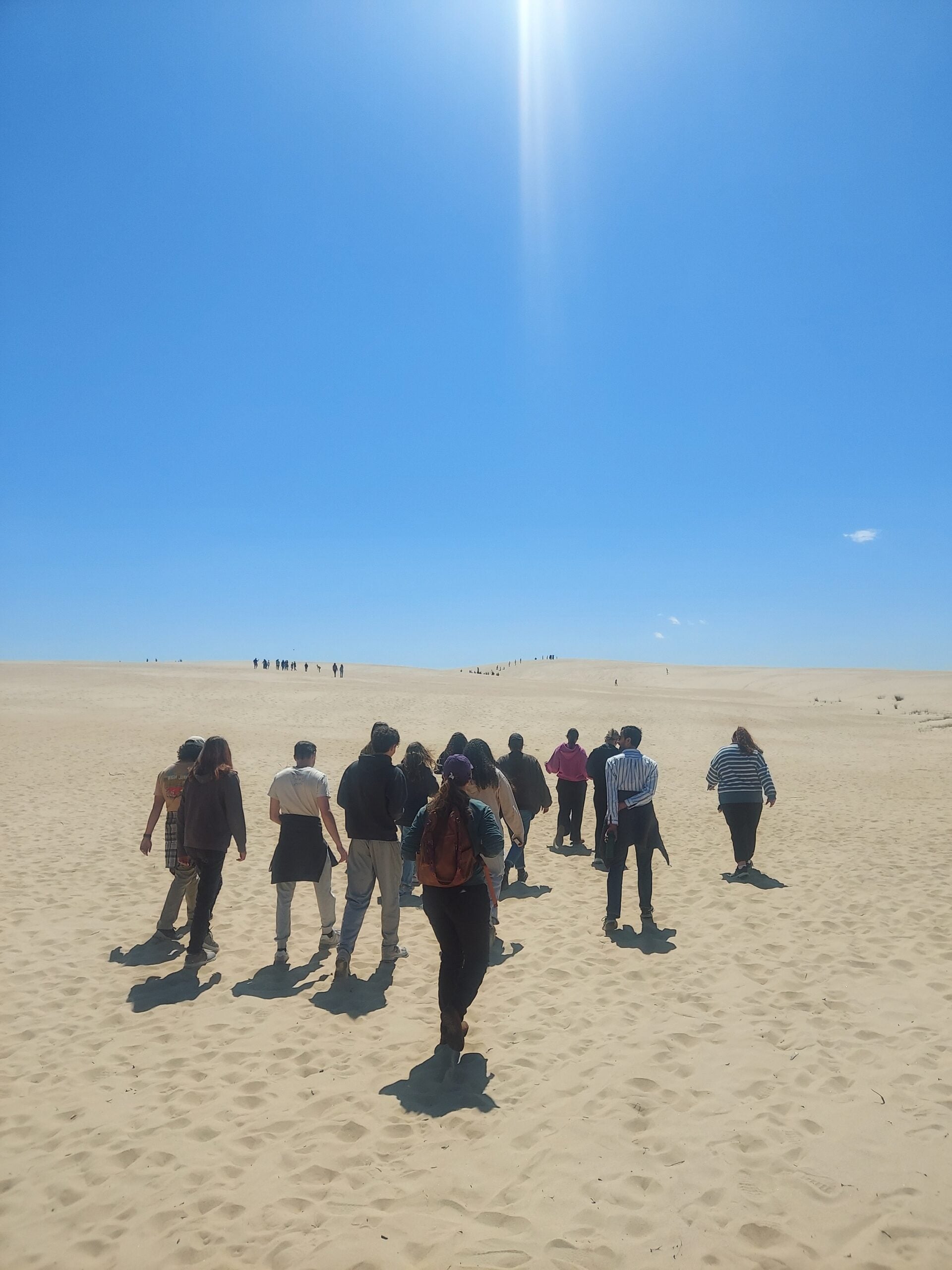
THE NC COASTAL FEDERATION
Speaking of the NC Coastal Federation, I’m super grateful I got exposed to such a great organization. During our field trip we got a mini tour of their Wanchese site (they have three across the North Carolina coastline), then we got to hear about the initiatives they take to restore our coasts. It’s not news that our waters and the surrounding lands aren’t exactly healthy, and the NCCF is big on getting the surrounding communities involved to make the situation better, so that future generations can enjoy them like we do. If you’re into fishing, enjoy the beach, or generally like living in a non-polluted/flooded area, it’s something you should care about. I’d definitely look into the organization and others like them if you’re interested. I was indeed interested, so much so that when spring break rolled around, I decided to volunteer with them instead of bedrotting at home. Almost as if it was written in the stars, ECU’s CLCE had an Alternative Break Experience (ABE) with the NCCF down at their Newport location.
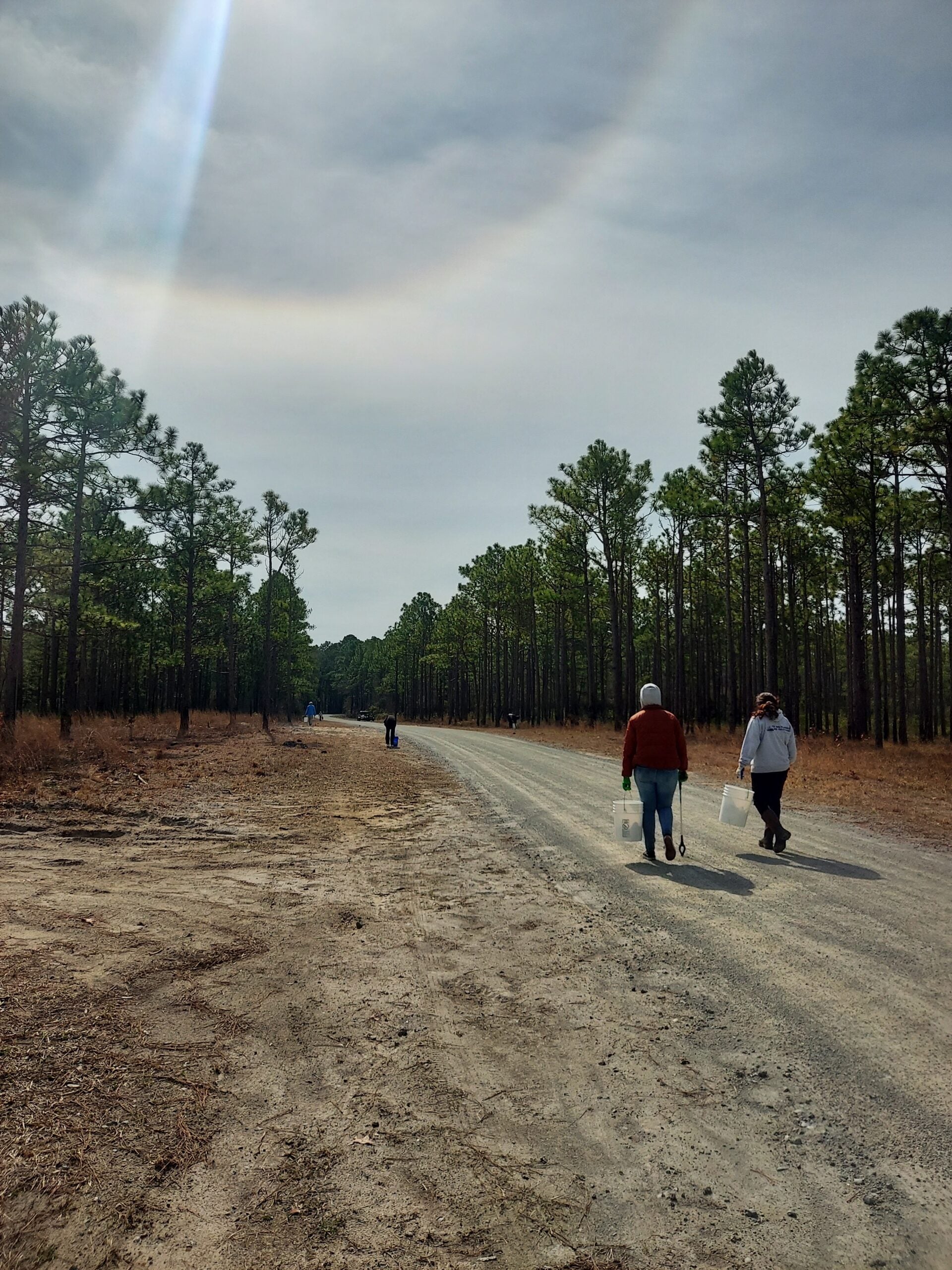
This was by far one of my best volunteering experiences I’ve had. Our days started early, with a daily drive out to the Carteret County area. We got to do things like marsh clean ups, oyster restoration, and even going around Bear Island to put up “nesting birds” signs for habitat preservation. We worked with park rangers and other NCCF staff that were so knowledgeable about coastal conservation and friendly enough to let us serve our ENC communities. My biggest takeaway was the fulfillment of doing practical work for a cause that I came to learn and care about so much. I was tired at the end of each day, but I was happy with myself.
REGRETS?
My biggest regrets were that I didn’t take advantage of the tons of research and internship opportunities that the Coastal Studies Institute provides. There are so many good professors out there who are eager to take on students interested in their research. And if you have your own idea, you can even do an independent study, where a professor supervises you and your research project is basically up to you. Around the time the semester came to an end, I was so surprised to see all of the different projects my peers did, from botanist work with the Elizabethan gardens, to a study on different native tribes and their cultural ties to the wetlands. There was one on wave power, and I think even one person did an internship with the local police department! And I thought my little soil cores from my lab were cool.
ALL GOOD THINGS MUST COME TO AN END
As much as I didn’t want it to, the semester eventually came to an end. Though I wish I could’ve stayed, I left so grateful for the new appreciation I had for the coast. The hands-on learning in an environment like that was unforgettable. I know a lot of my peers felt the same way, I have a friend who even discovered a career path they plan to pursue after her time out there. I know for me, I really want to work in conservation even more now than I did before. Being surrounded by the environment I wish to protect really inspired me to go for it full throttle.
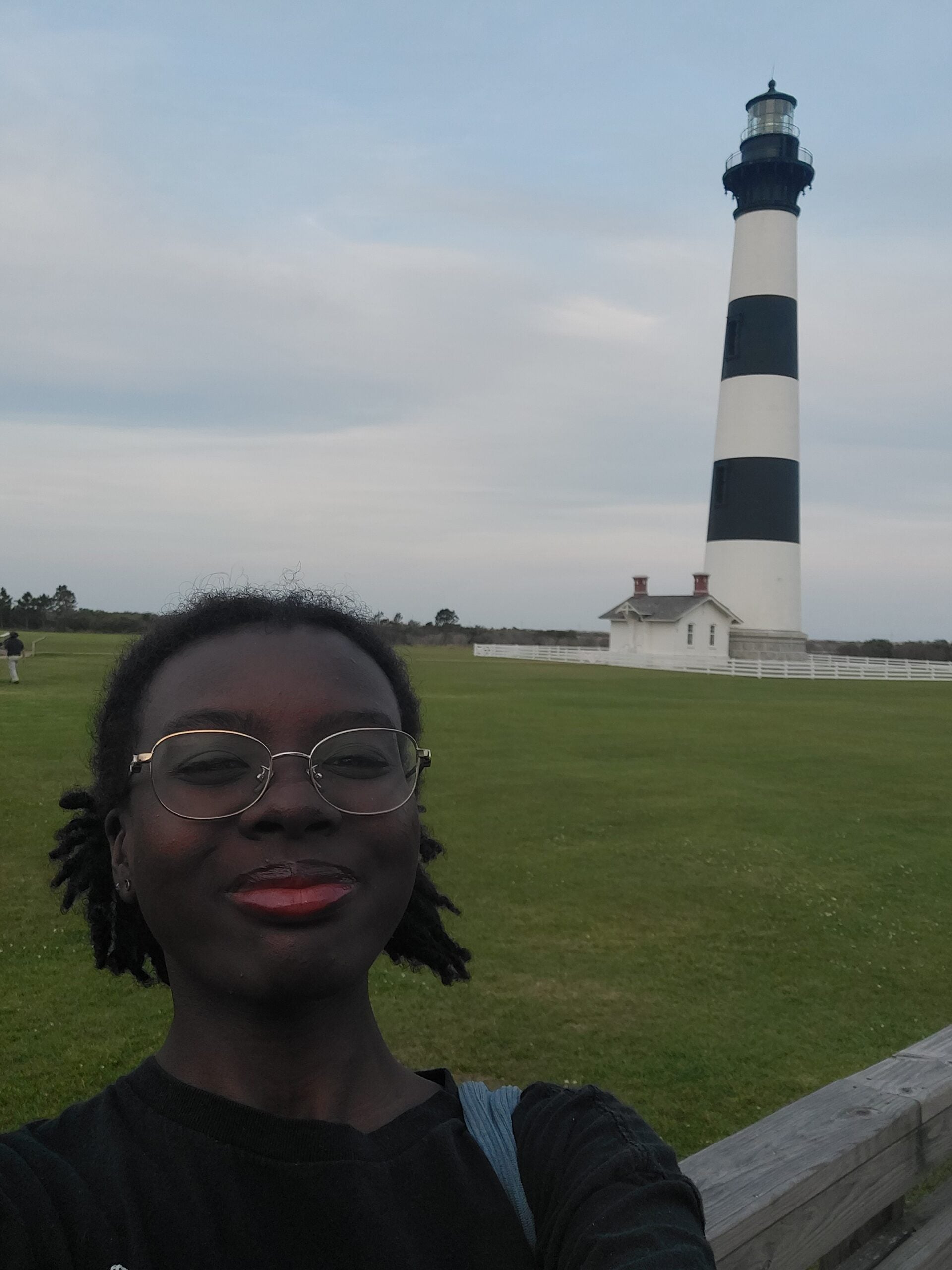
I’d definitely recommend the Coastal Studies program to any student interested in the marine environment. Your major doesn’t even have to be related to the natural sciences, if you love the beach and want to learn more, I say go for it. It’s honestly a fun way to knock out your Gen Ed too. If you’re thinking about going, I say do it. It’s a wonderful experience and you won’t regret it. I certainly didn’t.